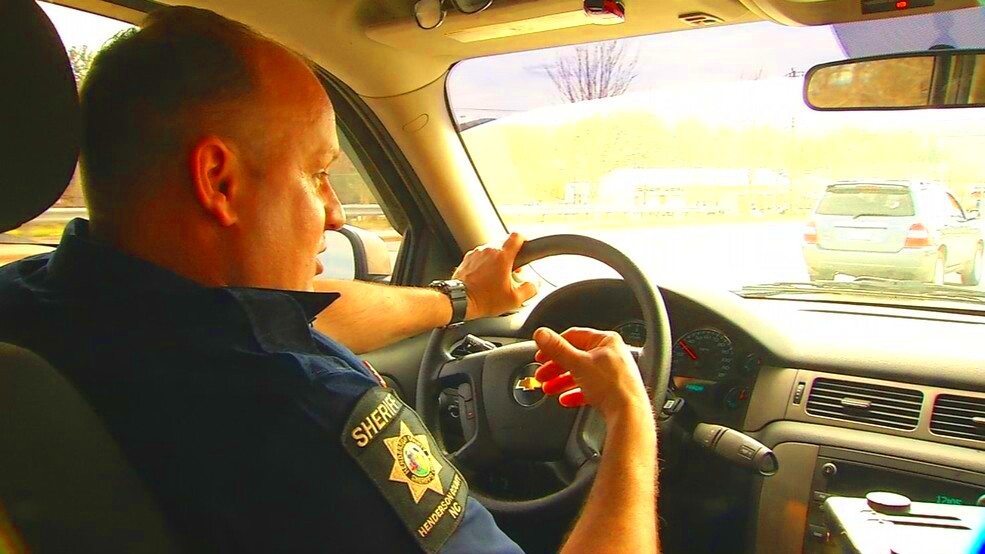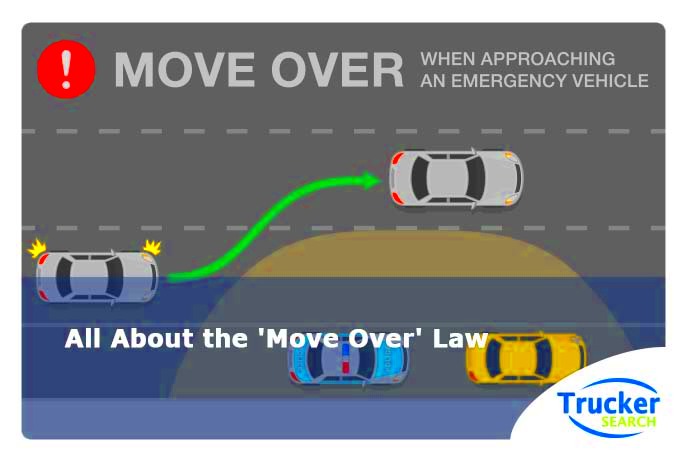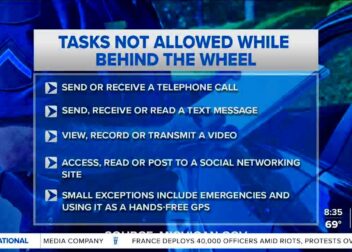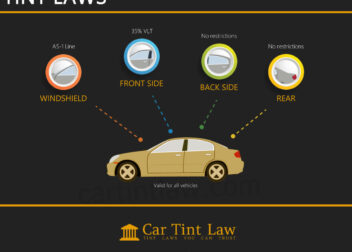North Carolina Move Over Law Explained
The North Carolina Move Over Law is designed to protect emergency responders and roadside workers. When you see flashing lights on the side of the road, it’s crucial to know how to respond to ensure everyone’s safety. This law aims to create a safer environment for those who assist others in emergencies.
Purpose of Move Over Law

The primary purpose of the Move Over Law is to prevent accidents involving emergency personnel and to promote safety on the roads. Here are some key points:
- Protect Lives: The law helps safeguard the lives of police officers, firefighters, paramedics, and tow truck operators who work near moving traffic.
- Reduce Accidents: By requiring drivers to move over or slow down, the law aims to reduce the likelihood of collisions.
- Raise Awareness: It encourages drivers to be more aware of their surroundings when approaching emergency scenes.
This law is not just about compliance; it’s about fostering a culture of safety and respect for those who risk their lives to help others.
Who Needs to Move Over
The Move Over Law applies to various types of vehicles and situations. Here’s a list of those who require drivers to take action:
- Emergency Vehicles: This includes police cars, ambulances, and fire trucks that are responding to emergencies with their lights flashing.
- Roadside Assistance: Tow trucks and vehicles providing assistance to stranded motorists are also covered under this law.
- Public Service Vehicles: Vehicles used by utility workers or other public service employees may require drivers to move over when they are on the side of the road with flashing lights.
When you encounter any of these situations, it’s your responsibility to either:
- Move to the next lane away from the emergency vehicle if it’s safe to do so.
- If you can’t change lanes safely, reduce your speed and be prepared to stop.
By understanding who needs to be given space on the road, we can all contribute to making our roads safer for everyone.
Penalties for Not Complying
Understanding the penalties for not complying with the North Carolina Move Over Law is crucial for all drivers. When you fail to follow this law, you could face serious consequences. Here’s what you need to know:
- Fines: Fines for violating the Move Over Law can range from $250 to $500, depending on the severity of the offense.
- Points on Your License: Offenders may receive 3 points on their driving record. Accumulating too many points can lead to increased insurance rates or even license suspension.
- Increased Insurance Rates: A violation on your record can raise your insurance premiums, resulting in higher costs for you in the long run.
- Potential Criminal Charges: In cases where a failure to comply results in injury or death, more severe charges may be brought against the driver.
These penalties are in place to emphasize the importance of road safety and to protect those who are working hard to assist others. By adhering to the Move Over Law, you help ensure a safer environment for everyone on the road.
How to Safely Move Over
Knowing how to safely move over when you see emergency vehicles is essential. Here are some tips to ensure you’re doing it right:
- Stay Calm: Panicking can lead to dangerous decisions. Stay calm and assess the situation.
- Check Your Surroundings: Look in your mirrors and blind spots to make sure it’s safe to change lanes.
- Use Turn Signals: Always signal your intention to change lanes, so other drivers know what you’re doing.
- Slow Down: If you can’t change lanes, reduce your speed to show respect for the emergency workers.
- Move Over: If possible, shift to the lane furthest away from the emergency vehicle.
By following these steps, you can help keep emergency responders safe while maintaining safety for yourself and other drivers.
Exceptions to the Move Over Law
While the Move Over Law is straightforward, there are certain exceptions to consider. Understanding these exceptions can help you make the right decisions on the road:
- Stationary Vehicles: If an emergency vehicle is parked on the side of the road without flashing lights, you may not be required to move over.
- Traffic Conditions: If traffic is heavy and it’s unsafe to change lanes, you may not need to move over but should still slow down.
- Emergency Situations: In some emergencies, drivers may not be able to comply due to immediate hazards. Use your best judgment.
Even with these exceptions, it’s always a good idea to exercise caution and prioritize safety whenever you encounter emergency vehicles. Awareness and understanding are key to navigating these situations responsibly.
Importance of Road Safety
Road safety is a crucial aspect of our daily lives. It affects not just the individuals behind the wheel but also pedestrians, cyclists, and emergency responders. Understanding the importance of road safety can help us all make better choices. Here’s why it matters:
- Protect Lives: Every year, thousands of people lose their lives in traffic accidents. By prioritizing road safety, we can significantly reduce these numbers.
- Prevent Injuries: Many accidents lead to severe injuries that can impact lives forever. Safe driving practices can help prevent these situations.
- Legal Consequences: Neglecting road safety can lead to fines, penalties, and even jail time in severe cases.
- Financial Impact: Accidents can result in costly repairs, medical bills, and increased insurance premiums. Being cautious can save you money.
Additionally, a culture of road safety fosters respect among all road users. By being mindful of traffic laws, including the Move Over Law, we contribute to a safer environment for everyone. Remember, safety on the road is a shared responsibility!
Common Myths About Move Over Law
There are several myths surrounding the North Carolina Move Over Law that can lead to confusion. Let’s clear some of these up:
- Myth 1: Only police vehicles require you to move over.
Fact: The law applies to all emergency vehicles, including ambulances, fire trucks, and tow trucks. - Myth 2: You only need to move over if there is a traffic stop.
Fact: You should move over for any emergency vehicle with flashing lights, regardless of the situation. - Myth 3: It’s okay to ignore the law if I’m in a hurry.
Fact: Ignoring the Move Over Law can result in serious penalties, and your rush is never a valid excuse. - Myth 4: Slowing down is enough; I don’t need to move over.
Fact: The law requires you to either change lanes or slow down significantly if it’s not safe to move over.
Understanding the truth about the Move Over Law is essential for keeping our roads safe. Don’t let these myths mislead you; always prioritize safety.
FAQs About North Carolina Move Over Law
Many people have questions about the North Carolina Move Over Law. Here are some of the most frequently asked questions:
- What does the Move Over Law require?
- The law requires drivers to move over to the next lane when approaching an emergency vehicle with flashing lights. If it’s not safe to change lanes, you must slow down significantly.
- Are there penalties for not complying?
- Yes, failing to comply can result in fines ranging from $250 to $500 and points on your driving record.
- Does the law apply to all emergency vehicles?
- Yes, the Move Over Law applies to police cars, ambulances, fire trucks, and other emergency vehicles with flashing lights.
- What should I do if traffic is too heavy to move over?
- If it’s unsafe to change lanes due to heavy traffic, slow down and proceed with caution. Always prioritize safety.
- Can I be fined if I’m not involved in an accident?
- Yes, you can still be fined for failing to move over even if no accident occurs. Compliance with the law is mandatory.
These FAQs help clarify common concerns and ensure that all drivers understand their responsibilities on the road. If you have more questions, it’s always a good idea to consult official resources or your local law enforcement.
Conclusion on Move Over Law
The North Carolina Move Over Law is vital for ensuring the safety of emergency responders and all road users. By understanding and adhering to this law, you play a crucial role in creating a safer driving environment. Remember that moving over or slowing down when you see emergency lights is not just a legal requirement; it’s a moral obligation to protect those who risk their lives to help others. Let’s all commit to being responsible drivers, prioritizing safety, and making our roads a safer place for everyone.


